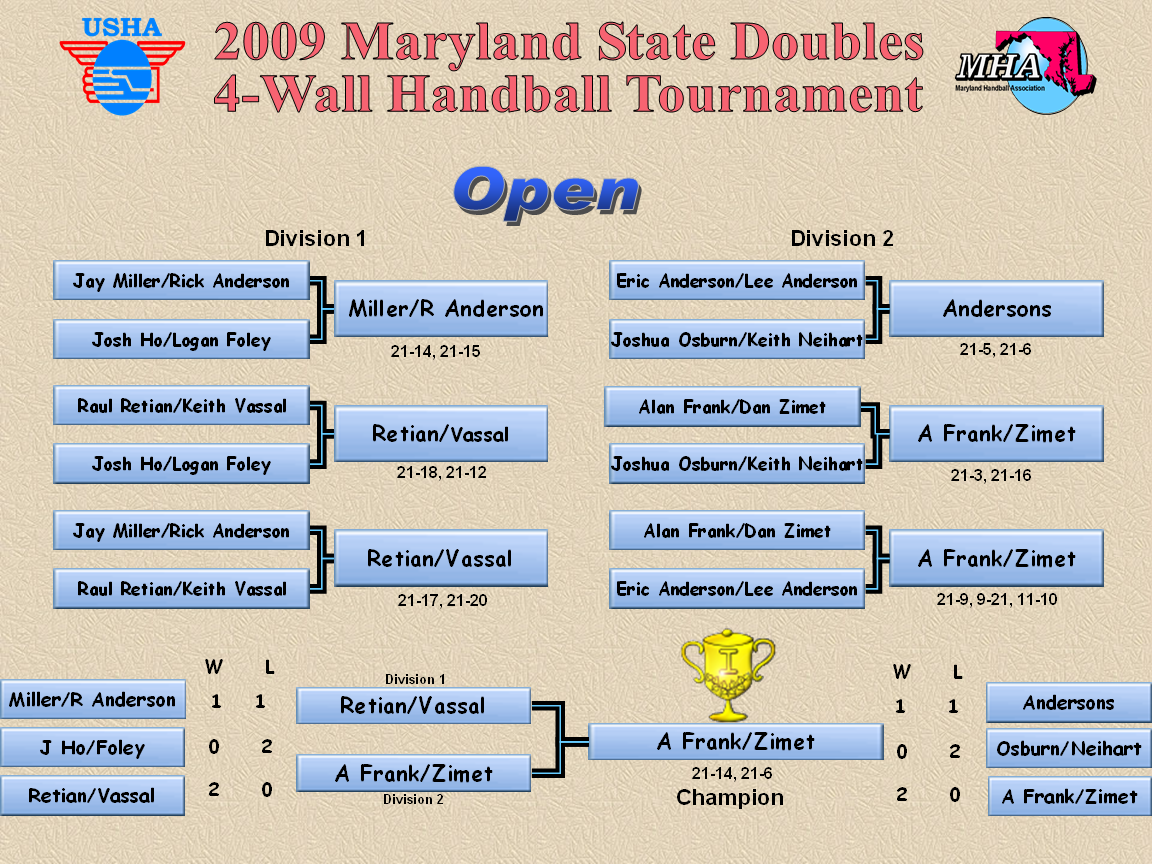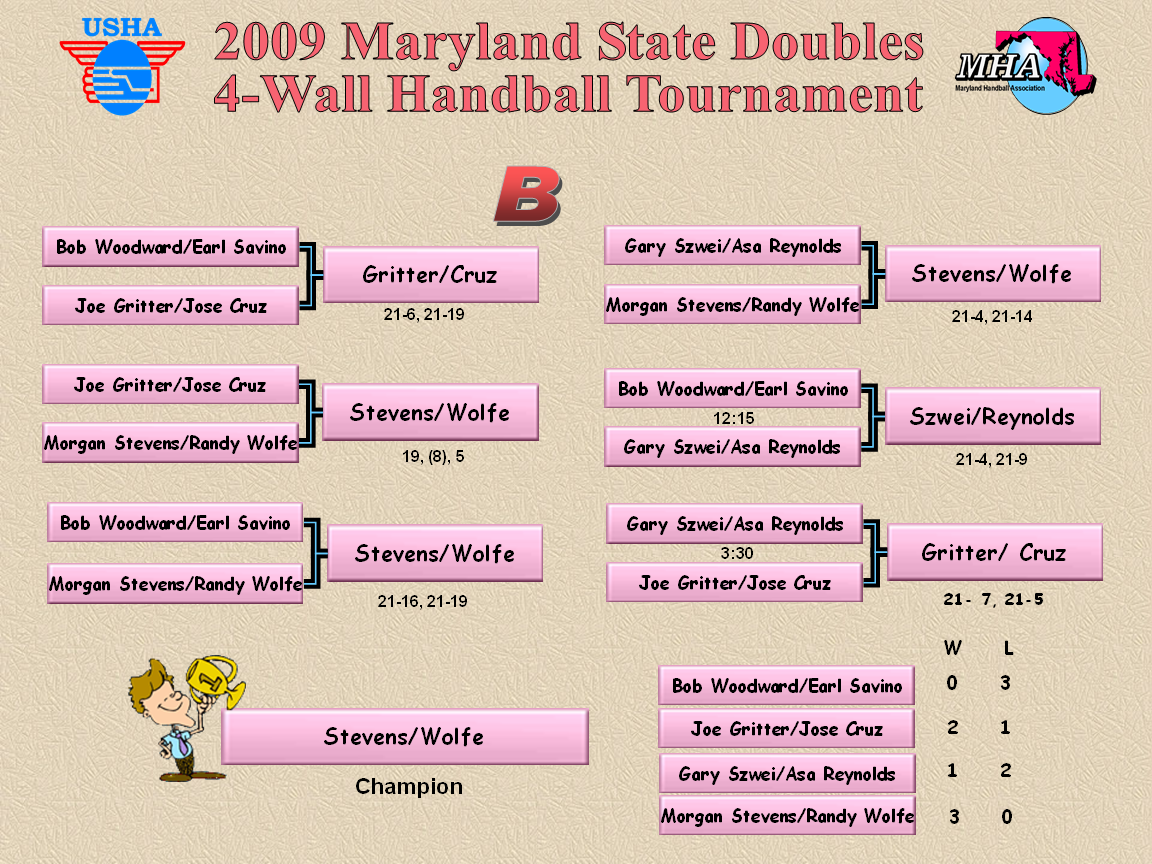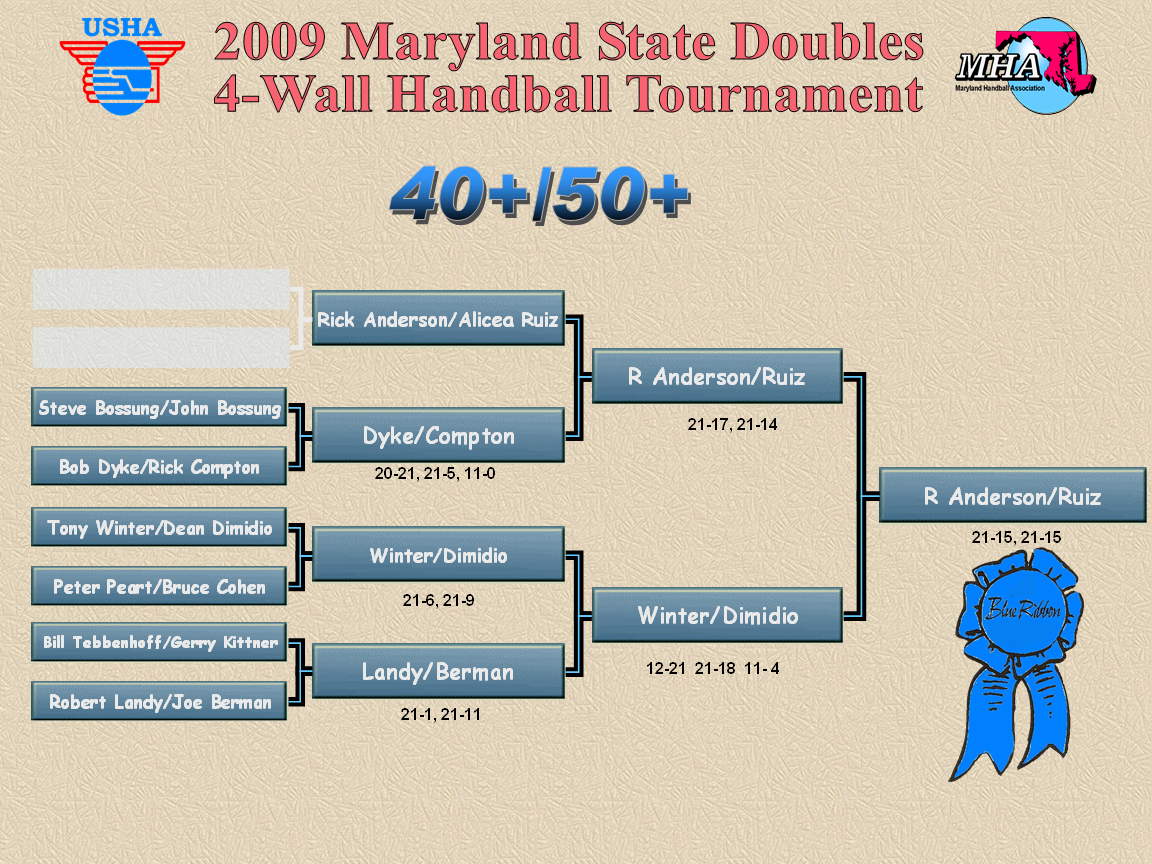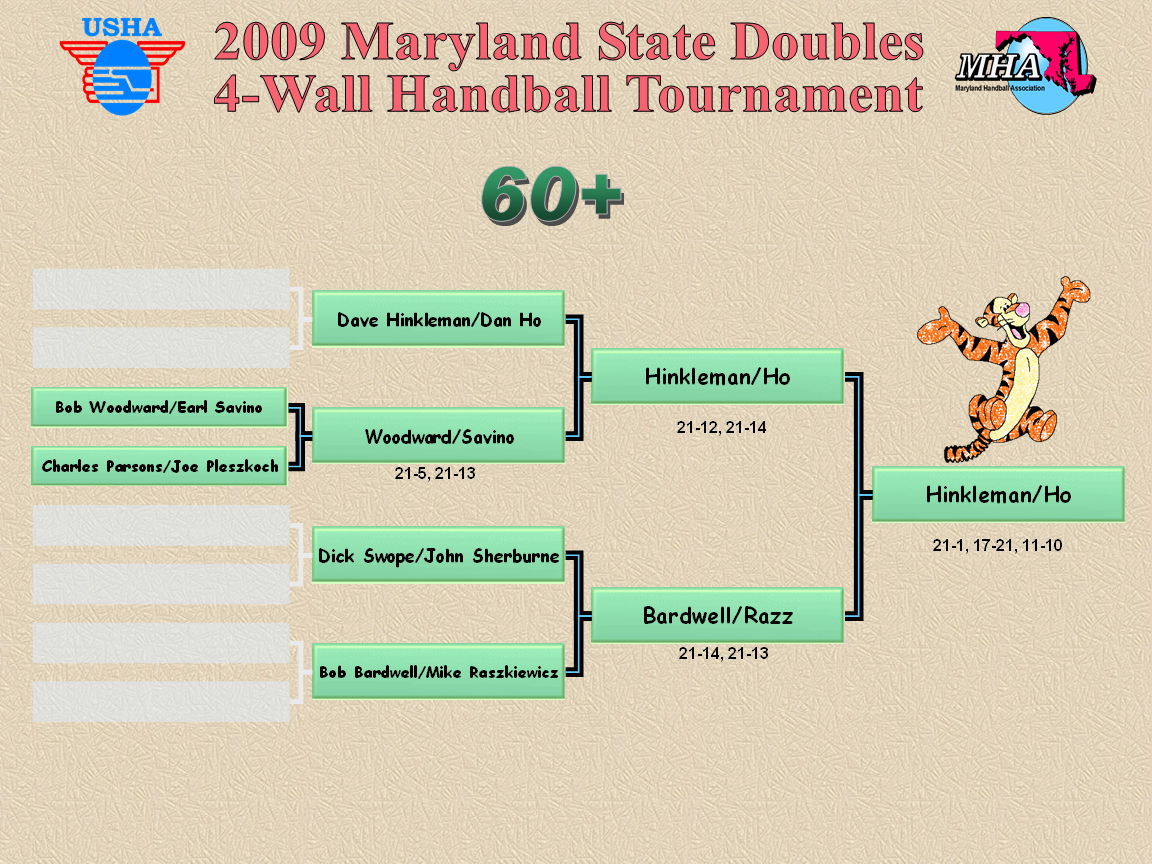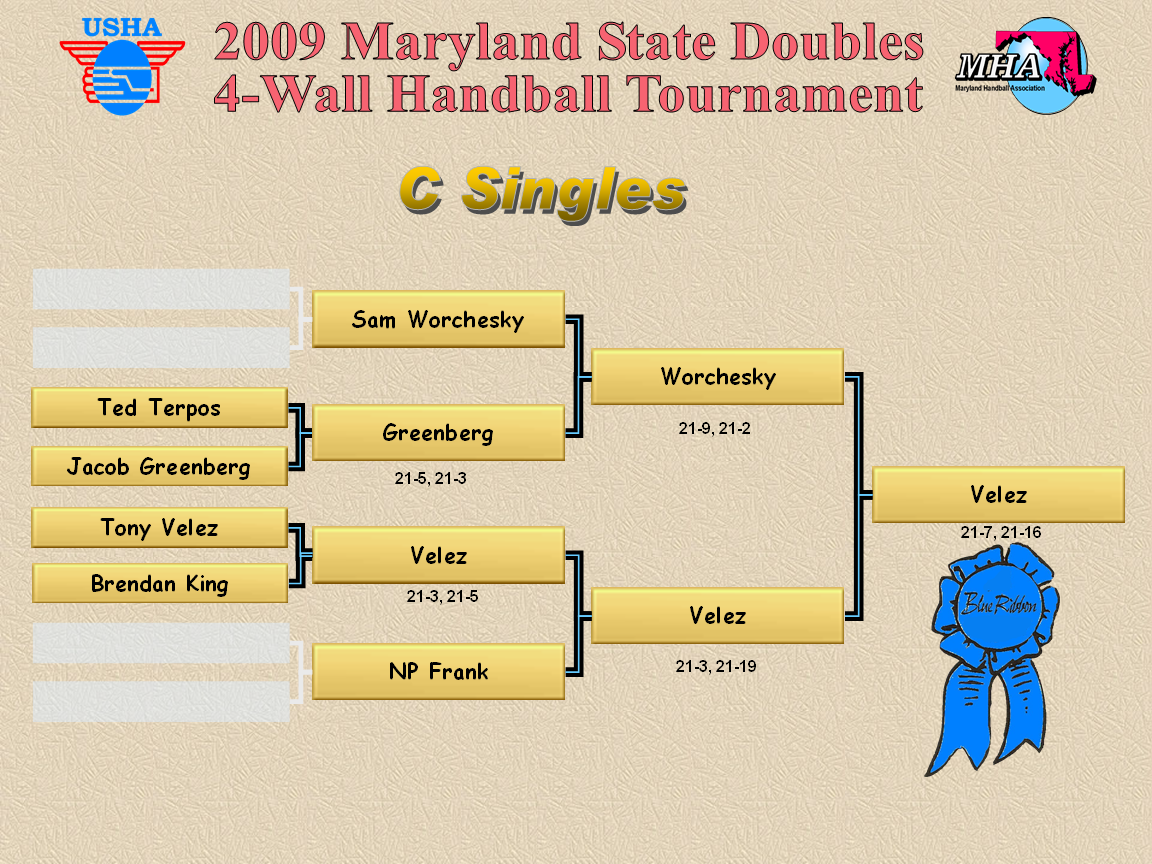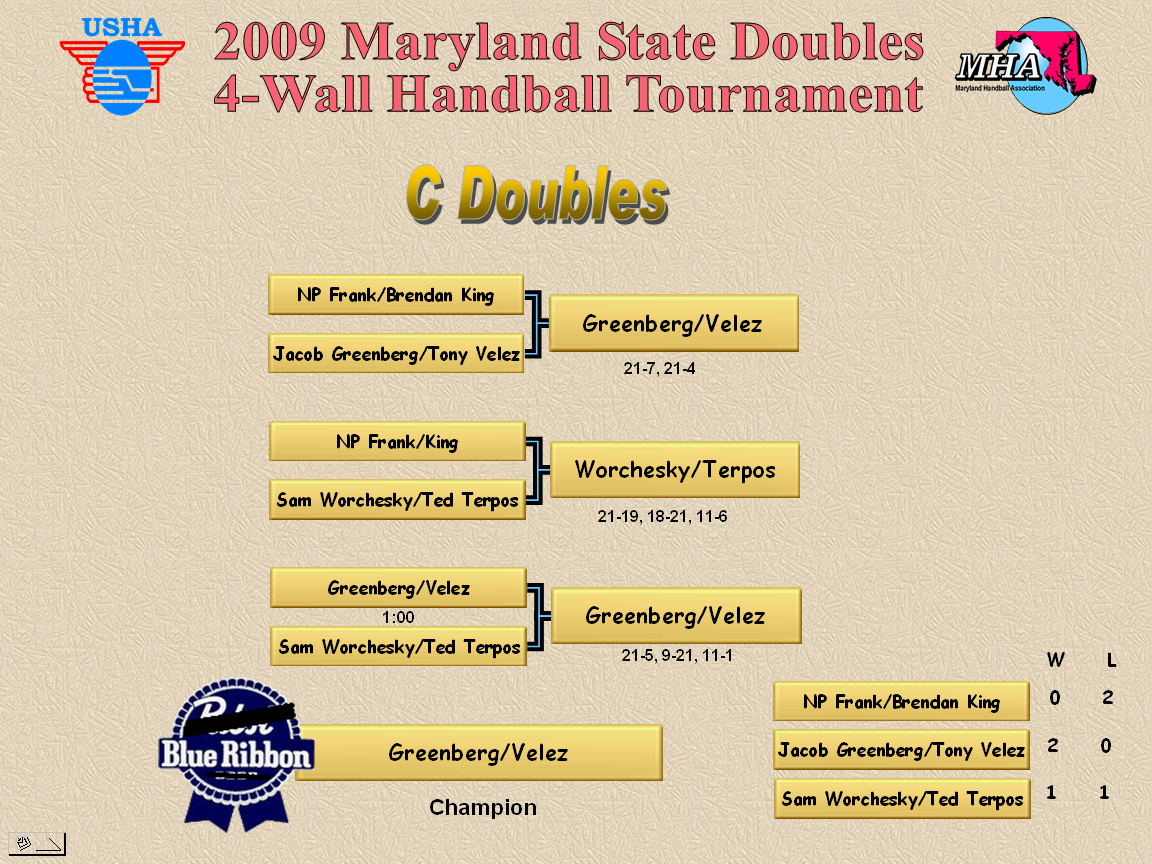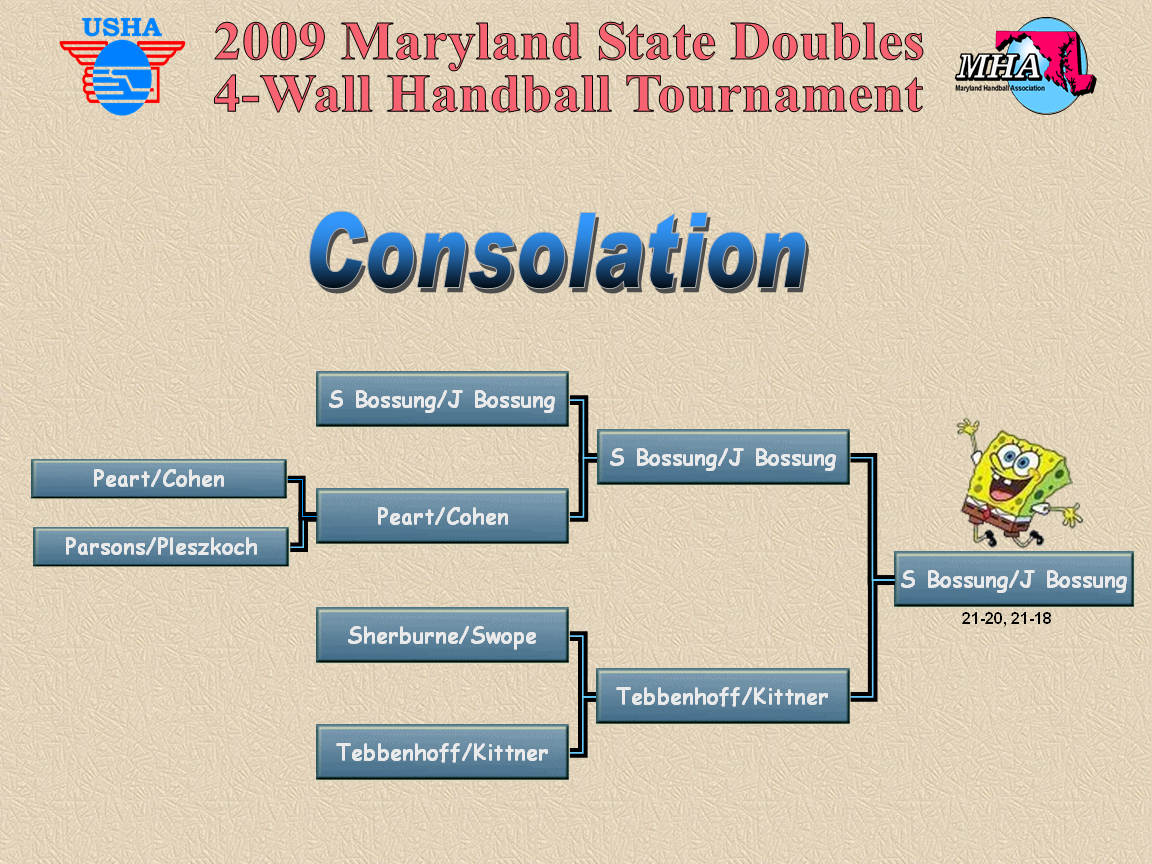Having played as Joe’s partner and against him in doubles, I was well aware of his deft hands and surprising agility around the court. Joe is deadly up front with his ability to redirect the ball on extremely flat trajectories and pinched corner shots.
Stepping on the court for the first time against Joe in singles was not as intimidating as one might imagine. I just had to figure out a way to keep him moving around the court. The game started quickly and I immediately found myself in a deep hole. It took half a game to settle down and adjust to the glass back wall. No matter how often one plays in the glass courts, it always takes some getting used to. But as it turned out, the glass was not the problem, it was my head in a fog and Joe’s lob serves to the left. But I adjusted and settled in to score 10 points before succumbing in the first game.
Hoping to rally from the momentum of my first game second half revival, I was confident that I could make a run of it and force a tie breaker. With Joe’s back being an issue, the longer I kept him on the court, the better my chances. Unfortunately, my plans were quickly dashed as Joe darted out to a commanding lead. My mind’s bravado turned into a whimper on the court and before I blinked, the game and match was over. I congratulated Joe for his fine play and wished him well against his next opponent.
That next opponent was none other than Roger Berry who battled a younger, less experienced Oscar Diaz. But from the glimpses of their second game and the final scores from the match (21-14 and 21-15), Oscar held his own. Later in conversations with the gallery, Oscar was informed as to exactly who he was pitted against in his match. Even through his amazement of Roger’s talent, his relative youth and pride could not accept the magnitude of the lesson he was afforded by going toe-to-toe with one of the finest players to play our game.
So Joe and Roger met in the Masters final on court one in plain view of all who chose to watch. Roger’s effortless and tireless precision was on full display. His slaps of the ball leaves the crispest sounds, likened to a snapped towel often heard in team locker rooms. Roger glides around the court with the efficiency of a well oiled machine. Every shot he takes is measured and the results always seem to be the same: point or side out. There is no wasted effort with this player. Joe gave his all in the first game, but had to climb back too far after Roger had raced out to what turned out to be an insurmountable lead, game at 21-12.
The second game became a foregone conclusion as Roger edged around the court and surgically manipulated the ball to quick kills and precise passing shots. To Joe’s credit, with his back ailing, he never quit, and at times, in both games showed why he is such a formidable player and opponent. Game at 21-5 and match as Roger claims another championship.
As the Open division took shape toward the finals, there were several intriguing matches to report. Logan Foley v. Eric Smith battled to a spilt of the first two games, the first going to Eric 21-16 and Logan taking the second, 21-3. The tie breaker had Logan in a commanding lead of 10-4 only to see Eric fight back, but eventually losing at 9. Logan next faced the formidable Dan Zimet who waited after his first round bye. Dan and Logan battled with great tenacity with Dan taking the match in the minimum two games, 21-15 and 21-12.
On the other side of the bracket, Dave Bardwell was able to quickly dispatch Adam Berwitz, 21-2 and 21-4. This was Adam’s first tournament in over 4 years. Fresh from his victory, Dave looked to face Alan Frank. The first game was relatively fast as Dave kept Alan at bay with his quick kills and great command of his left handed shots, 21-9. The second game was anything but quick. Scoring was sparse and side outs were numerous. Some rallies were long, but the majority was short and resulted in the frequent side outs. Although Dave forged ahead and remained there, it was an epic battle. Both warriors determined to vanquish the other. Calling this match as a referee, it was difficult at times to break the action to make a necessary call. And as a true champion that Alan is, even though down one game and battling to remain in contention in the second, he showed why he has been champion so many times. With Dave at match point, Alan chipped away at the lead until he drew within a point of evening the game. But after getting Dave out twice, on subsequent serves, Alan could not muster a winner for the equalizer. After a frustrating side out, Alan could not return Dave’s volley and the long battle ended at 21-19.
Dave now faced Dan in the Open finals. Dan wasted no time frustrating Dave with his flat hopping serves to the right. Each one seemed to befuddle Dave and soon the score was 13 to 2. Dan continued to pour it on and put away the game with ease, allowing Dave just a single point for the rest of the game.
The second game saw fortunes reversed for Dan as he labored on the short end of many points. Dave had righted the ship and for the moment seemingly to have solved Dan’s devastating serve. Dave moved Dan around with his variety of shots as he often rallied off Dan’s serves. In what seemed like the blink of an eye, the game was over with Dave on top, 21-5.
With the tie breaker looming, both players took their respective between game breaks to gather themselves and refocus. Back on the court, Dan wasted no time to reestablish his dominant serve that kept Dave on his heels. Whether it was Dave’s fatigue or other factors, Dan was relentless and jumped out to a 6-1 lead which he expanded to 9-1 before Dave ran off 3 points to narrow the margin at 9-4. Following the side out to break Dave’s mini run, Dan closed out the match with two quick points. With the gallery cheering and calling for “more,” both players walked off the court to the deserved applause.
The 60+ division for this tournament pitted long time friends against each other. In the group, familiarity with each other’s game only added to the intrigue of the match ups. Paul Healey battled Joe Pleszkoch for the right to face Dan Ho. While on the other side of the draw, Dave Hinkleman and Charlie Parsons slapped it around to earn a match with Bob Bardwell. Healey battle from a first game lost, 8-21 to take the second game at 21-17 and then runaway with the tie breaker 11-3. Hinkleman with his crafty shot making skills handled Charlie, 21-8 and 21-2.
In one semifinal, Ho handled Healey 21-16 and 21-11. In the other match, Bardwell bested Hinkleman, 21-7 and 21-15. The finals shaped up to be a repeat of last year’s match up, Ho v. Bardwell. That was an epic battle as neither player relented. Unfortunately, this year’s rematch did not live up to the hype as Bardwell dictated the pace and tempo of both games and easily won the match 21-7 and 21-3. As Ho said later, “I had no answer for anything he sent my way.” I am sure this is not the last time these two fine players will meet inside the box!
The C division consisted of young and older developing players. In their round robin format, the scores from games often seem one-sided. But this is just one day along the road of developing and those scores can change quickly. It is great to know that the torch is being passed and that with perseverance, it will stay lit. Congratulations to all the newcomers and to the eventual champion.
So how long did it take Rome to be built? Well, that answer can be found in the historical records. But in handball, building the body of work to become a champion can be measured in small increments. Sometimes it is the positive result of a rally or seemingly impossible dig, but these are the building blocks used to carve out the path and to erect the structure that wards off all foes and vanquish all who approach on any given day or days. The building continues.

